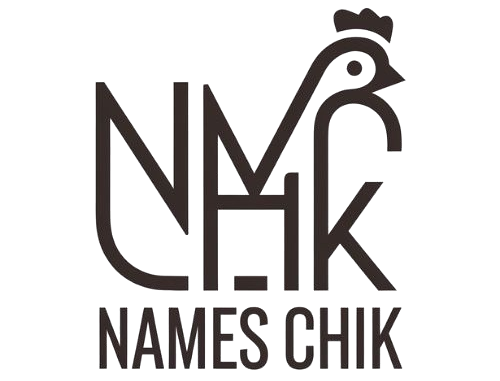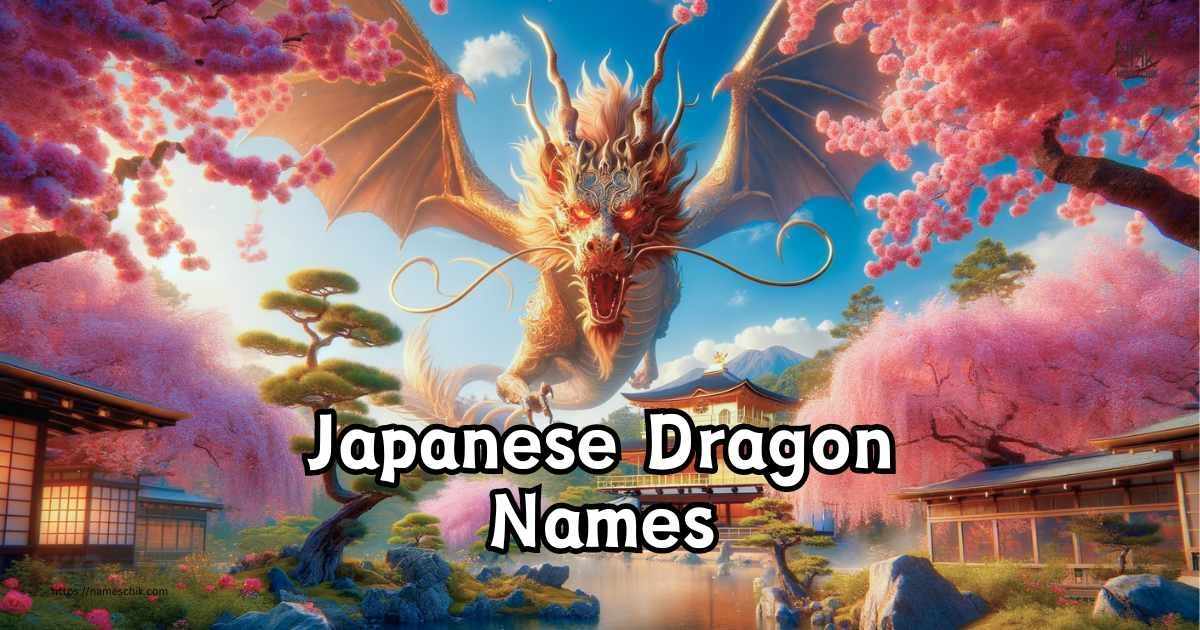Japanese dragon names captivate the imagination, weaving a rich tapestry of wonder and mystique in Japanese mythology. These names do more than identify; they reveal the dragons’ unique characteristics, incredible powers, and profound cultural significance. In Japan, dragons are not just fearsome beasts; they symbolize wisdom, strength, and a deep connection to nature’s elements. From the majestic Water God Dragon to the awe-inspiring Dragon, each name unfolds a story steeped in ancient beliefs.
Delving into Japanese dragon names offers a fascinating glimpse into a culture that reveres the natural and spiritual worlds. Each name is imbued with symbolic meaning, highlighting themes of transformation and the delicate balance of cosmic forces. Whether you’re intrigued by the legendary Great Land Dragon or the enchanting Moon Reading Dragon, uncovering these names elevates your understanding of Japanese mythology. Embark on an exciting journey through the realm of mythical creatures and powerful storytelling.
Cultural Names for Japanese Dragon
- Kawa-no-Kami – River Lord Dragon
- Yama-no-Kami – Mountain God Dragon
- Seiryu – Blue-Green Dragon
- Ryujin – Dragon God of the Sea
- Kuroyuri – Black Lily Dragon
- Tatsu – Dragon
- Mizuchi – Water Dragon
- Hōō – Phoenix Dragon
- Goryō – Vengeful Spirit Dragon
- Kame – Turtle Dragon
- Fūjin – Wind God Dragon
- Shōrin-ji – Pine Forest Dragon
- Kōryū – Eternal Dragon
- Jinmenju – Human Face Tree Dragon
- Gōzuki – Great Moon Dragon
- Oinari – Guardian Dragon
- Kamikaze – Divine Wind Dragon
- Fukurokuju – Happiness and Wisdom Dragon
- Nakanokami – Middle God Dragon
- Yamata-no-Orochi – Eight-Headed Dragon
- Hōkō – Dragon of Happiness
- Hoshikuzu – StarDust Dragon
- Sakanoue-no-Tamuramaro – Dragon of the Sakanoue Clan
- Yūrei – Spirit Dragon
- Isuzu – Dragon of the Raging River
- Guren – Crimson Dragon
- Kōen – Flame Dragon
- Hiyoko – Chick Dragon
- Kōga – Dark River Dragon
- Umigame – Sea Turtle Dragon
Legendary Names for Japanese Dragon
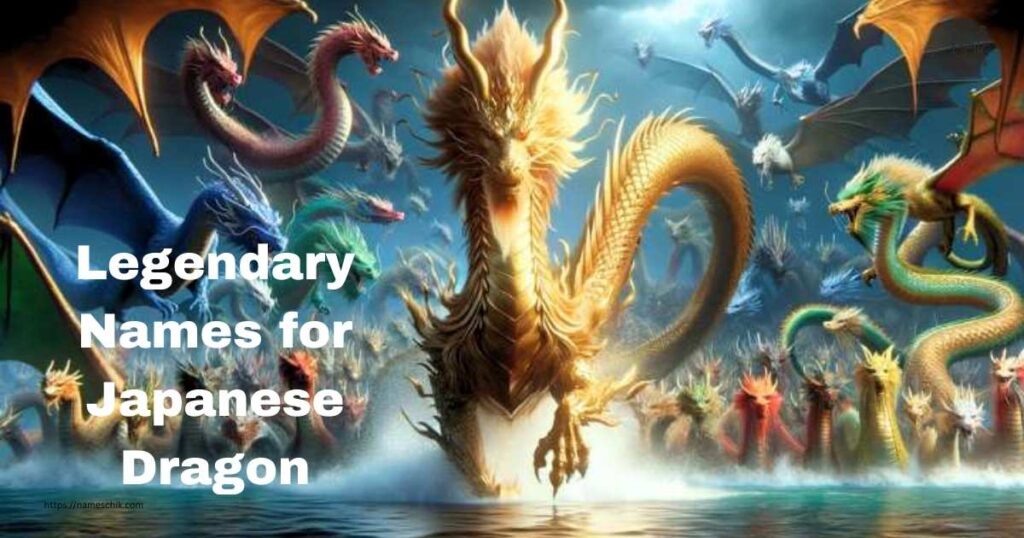
- Yamata-no-Orochi: This dragon has eight heads and represents chaos and the power of nature’s forces.
- Ryujin: Known as the dragon god of the sea, Ryujin rules over water and storms with strength.
- Ikazuchi: A thunder dragon associated with lightning, symbolizing power and ferocity in battles and storms.
- Hōō: Also called the phoenix, this dragon signifies rebirth and immortality, rising from its ashes.
- Kurotatsu: The black dragon represents mystery and strength, often seen as a guardian of treasures.
- Seiryu: Known as the blue-green dragon, Seiryu represents protection and is associated with the east.
- Takeminakata: The agricultural dragon symbolizes growth and prosperity, important for farming and harvest seasons.
- Fūjin: This dragon represents the wind and is often depicted with a bag of winds in its grasp.
- Raijin: A thunder god, Raijin is depicted as a fierce dragon that brings storms and heavy rains.
- Susanoo: This storm god embodies courage and is known for battling chaos in the form of dragons.
- Hoshiguma: The star bear dragon symbolizes guidance, often seen as a protector of travelers at night.
- Amaterasu: The sun goddess represents light and clarity, often associated with hope and new beginnings.
- Kame-no-Kami: Known as the turtle dragon, Kame-no-Kami symbolizes wisdom and longevity in Japanese mythology.
- Jiraiya: A young thunder dragon, Jiraiya is known for his adventures and heroic deeds in folklore.
- Hōzuki: The firefly dragon symbolizes beauty and illumination, often associated with summer and warm nights.
- Nūbō: This cloud dragon represents dreams and aspirations, guiding individuals towards their goals and ambitions.
- Chōkō: The super dragon embodies exceptional powers, often depicted as a fierce protector of realms.
- Kōjin: This fire god dragon symbolizes creativity and passion, inspiring artists and creators in their work.
- Ketsumatsu: Known as the blood dragon, Ketsumatsu embodies strength and determination in battles and conflicts.
- Fujin: This wind god dragon symbolizes change and transformation, reminding us of nature’s unpredictable beauty.
- Gojira: Inspired by Godzilla, Gojira represents modern interpretations of dragons in pop culture and media.
- Hōma: The flame dragon symbolizes passion and energy, often associated with fiery personalities and intense emotions.
- Rōyū: This dragon embodies courage and bravery, often seen as a protector of the innocent and weak.
- Chōryū: Known as the super dragon, Chōryū represents unmatched strength and legendary status among dragons.
- Hōkō: This happy dragon symbolizes joy and positivity, often seen as a bringer of good fortune.
- Ryūjin: The dragon god of the sea represents the power of water, vital for life and nourishment.
- Kōryū: This eternal dragon embodies everlasting life and wisdom, guiding souls through different realms.
- Hōō: This mystical dragon symbolizes the cycle of life, death, and rebirth in Japanese traditions.
- Jizō: The guardian dragon represents protection for children and travelers, often depicted in tranquil settings.
- Tsukuyomi: This moon god dragon symbolizes reflection and introspection, guiding individuals during their personal journeys.
Elemental Names for Japanese Dragon
- Fūjin – Wind God Dragon
- Suijin – Water God Dragon
- Raijin – Thunder Dragon
- Kasai – Fire Dragon
- Kōsen – Light Dragon
- Niji – Rainbow Dragon
- Kōri – Ice Dragon
- Chikyū – Earth Dragon
- Seiryu – Blue-Green Dragon
- Ikazuchi – Lightning Dragon
- Hōō – Fire Phoenix Dragon
- Uminari – Sea Dragon
- Tenryū – Heavenly Dragon
- Nami – Wave Dragon
- Ryusei – Meteor Dragon
- Rōyū – Flame Dragon
- Kaze – Wind Dragon
- Tsuki – Moon Dragon
- Taiyō – Sun Dragon
- Yuki – Snow Dragon
- Tsubasa – Wing Dragon
- Sui – Water Element Dragon
- Hikari – Light Dragon
- Jikan – Time Dragon
- Oka – Mountain Dragon
- Shiro – White Dragon
- Kuro – Black Dragon
- Kasumi – Mist Dragon
- Kōgen – Highland Dragon
- Hōrō – Abandoned Dragon
Symbolic Names for Japanese Dragon
- Shinrin – Forest Dragon
- Seisei – Life Force Dragon
- Kōsokudo – Cosmic Dragon
- Shinjū – Heart Dragon
- Chikara – Power Dragon
- Kizuna – Bond Dragon
- Shūshū – Harmony Dragon
- Shōten – Sacred Sky Dragon
- Inochi – Life Dragon
- Rebirth – Dragon of Renewal
- Kanzen – Complete Dragon
- Kōyō – Autumn Leaves Dragon
- Yume – Dream Dragon
- Aion – Eternity Dragon
- Shinjitsu – Truth Dragon
- Yūrei – Ghost Dragon
- Shizu – Calm Dragon
- Taiki – Atmosphere Dragon
- Kokoro – Heart and Spirit Dragon
- Sōzō – Creation Dragon
- Chōkō – Super Dragon
- Yūgen – Profound Dragon
- Michi – Path Dragon
- Fuan – Uncertainty Dragon
- Ki – Spirit Dragon
- Unmei – Destiny Dragon
- Shōwa – Peace Dragon
- Kizuki – Awareness Dragon
- Chūsei – Loyalty Dragon
- Reikon – Soul Dragon
Fantasy Names for Japanese Dragon
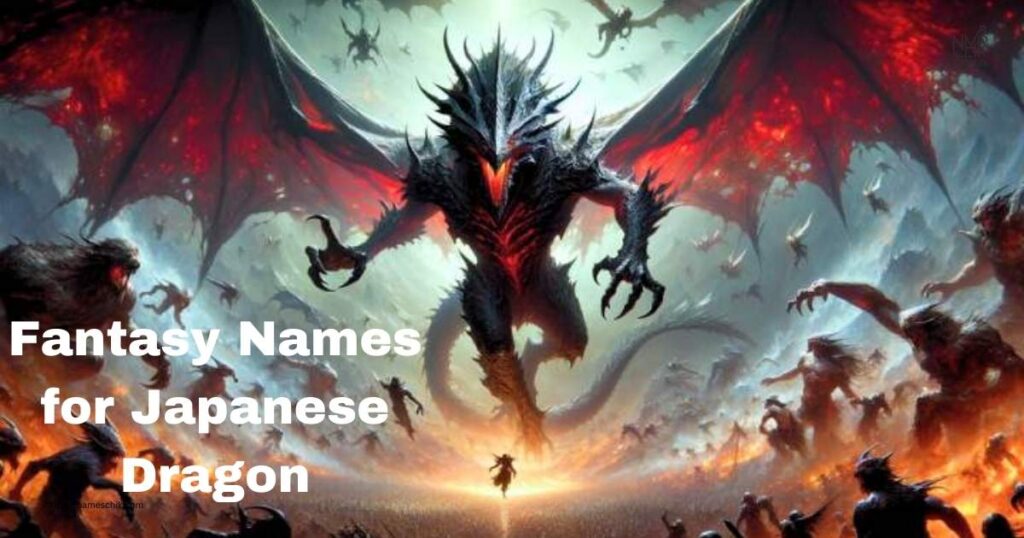
Kurogami: This dark spirit dragon embodies shadow and mystery, lurking in the depths of enchanted forests.
Aokami: The blue wolf dragon symbolizes loyalty and courage, often depicted as a guardian of lost souls.
Hikari: A light dragon representing purity and hope, often guiding those who seek enlightenment and truth.
Shirokaze: The white wind dragon embodies freedom and grace, often seen dancing through the skies.
Akakage: The red shadow dragon symbolizes passion and adventure, inspiring bold journeys through uncharted territories.
Kōgai: This radiant dragon represents harmony and balance, bringing peace to conflict-ridden lands and hearts.
Yume: The dream dragon symbolizes creativity and imagination, often inspiring artists and writers in their pursuits.
Seiryuu: The blue dragon represents clarity and protection, guiding lost travelers through stormy seas.
Chōsui: The super water dragon symbolizes rejuvenation and healing, often associated with sacred springs and waters.
Tsukikage: The Japanese names for dragons embodies mystery and allure, captivating all who gaze upon its shimmering scales.
Shinjitsu: The truth dragon symbolizes honesty and integrity, encouraging individuals to seek their true selves.
Murasaki: The purple dragon represents wisdom and intuition, often guiding those on their spiritual paths.
Yuki-onna: The snow woman dragon embodies beauty and serenity, often seen in winter’s gentle embrace.
Kaminari: This thunder dragon symbolizes strength and power, roaring through the skies during fierce storms.
Hōseki: The jewel dragon represents wealth and prosperity, often sought after for its magical treasures.
Kōri: The Japanese names for dragons embodies chill and tranquility, bringing calmness to heated disputes and conflicts.
Inazuma: This lightning dragon symbolizes speed and agility, known for its rapid movements and fierce nature.
Akatsuki: The dawn dragon represents new beginnings, bringing light and hope to dark situations.
Tsukiyo: The moonlit dragon embodies romance and mystery, enchanting lovers under the starry sky.
Hi-no-Tatsu: This fire dragon symbolizes passion and drive, inspiring individuals to pursue their dreams relentlessly.
Shinrin: The Japanese names for dragons represent nature and growth, reminding us of the importance of the environment.
Kurogiri: This dark mist dragon embodies secrecy and the unknown, often found in ancient legends.
Yumekuri: The dream cloud dragon symbolizes aspiration, encouraging dreams and ambitions to take flight.
Kōshin: The star dragon represents guidance, illuminating paths for those who wander in darkness.
Taka: The hawk dragon embodies vision and foresight, often guiding leaders in their decision-making.
Asahi: The morning sun dragon symbolizes hope and renewal, representing a fresh start for all.
Akuma: The devil dragon embodies chaos and temptation, often seen as a challenger to good.
Kage: The shadow dragon symbolizes stealth and cunning, perfect for those who prefer the unseen.
Tsubasa: The winged dragon represents freedom and exploration, inspiring adventures across distant lands.
Fubuki: The blizzard dragon symbolizes resilience, weathering storms and challenges with strength and grace.
Contemporary Names for Japanese Dragon
- Ryu – Dragon
- Hikari – Light Dragon
- Aoi – Blue Dragon
- Kuro – Black Dragon
- Hana – Flower Dragon
- Akane – Deep Red Dragon
- Sora – Sky Dragon
- Akira – Bright Dragon
- Yume – Dream Dragon
- Tsubasa – Wing Dragon
- Hoshiko – Star Child Dragon
- Kawaii – Cute Dragon
- Kōri – Ice Dragon
- Shizuka – Quiet Dragon
- Yuki – Snow Dragon
- Raku – Enjoyment Dragon
- Chibi – Small Dragon
- Kōbō – Workshop Dragon
- Yuuki – Courage Dragon
- Kizuki – Awareness Dragon
- Megumi – Blessing Dragon
- Ritsu – Harmony Dragon
- Asahi – Morning Sun Dragon
- Aki – Autumn Dragon
- Kizuna – Bond Dragon
- Masaki – Elegant Dragon
- Hayate – Swift Wind Dragon
- Raijin – Thunder Dragon
- Akira – Bright Dragon
- Haru – Spring Dragon
Famous Names for Japanese Dragon
- Godzilla: This iconic dragon symbolizes power and fear, becoming a cultural phenomenon worldwide.
- Mothra: Known as the benevolent dragon, Mothra represents protection and balance between nature and humanity.
- Shenron: This wish-granting dragon from anime symbolizes hope and the pursuit of dreams and desires.
- Gojira: The terrifying dragon represents chaos and destruction, often depicted as a force of nature.
- Ryujin: The dragon god of the sea symbolizes divine power and the importance of water in life.
- Hōō: The phoenix dragon represents rebirth, inspiring countless stories of renewal and transformation.
- Tatsu: This dragon represents wisdom and knowledge, often seen as a guardian of ancient secrets.
- Fūjin: Known as the wind god, Fūjin symbolizes change and transformation, influencing the world around him.
- Raijin: This thunder dragon represents strength and ferocity, often portrayed as a fierce warrior in legends.
- Amaterasu: The sun goddess dragon symbolizes light and hope, guiding humanity with warmth and clarity.
- Yamata-no-Orochi: This eight-headed dragon represents chaos, often defeated by heroes in ancient tales.
- Jiraiya: The young thunder dragon symbolizes bravery and heroism, inspiring generations with his adventures.
- Nūbō: The cloud dragon represents dreams and aspirations, often guiding individuals on their journeys.
- Fujin: This wind dragon symbolizes freedom and movement, reminding us of life’s transient nature.
- Hōma: The flame dragon represents passion and intensity, inspiring creativity and artistic endeavors.
- Kurotatsu: The black dragon symbolizes mystery and depth, often found in ancient folklore.
- Seiryu: This blue-green dragon represents protection and is often invoked in prayers for safety.
- Takeminakata: The agricultural dragon symbolizes growth and nourishment, crucial for farming traditions.
- Ikazuchi: The lightning dragon represents power and dominance, often feared for its destructive potential.
- Hōō: Known as the phoenix, this dragon embodies the cycle of life, death, and rebirth.
- Shinryū: The god dragon symbolizes divine wisdom, guiding followers on their spiritual paths.
- Jizō: The guardian dragon represents compassion and protection for travelers and children alike.
- Hōzuki: The firefly dragon symbolizes beauty and illumination, often associated with summer nights.
- Yume: The earth dragon names represents imagination and creativity, inspiring artists to dream big.
- Chōkō: The super dragon embodies exceptional powers, often celebrated in folklore for its strength.
- Akuma: The devil dragon symbolizes temptation and chaos, often depicted as a challenge for heroes.
- Kamikaze: This divine wind dragon represents protection and guidance, steering ships safely to shore.
- Hōkō: The happiness dragon symbolizes joy and positivity, bringing good fortune to those around.
- Murasaki: The purple dragon represents wisdom and spirituality, often guiding seekers in their journeys.
- Tsukuyomi: The moon god dragon symbolizes reflection and introspection, reminding us to look within ourselves.
Mythological Names for Japanese Dragon
- Yamata-no-Orochi – Eight-Headed Dragon
- Ryujin – Sea Dragon God
- Ikazuchi – Thunder Dragon
- Takeminakata – God of Agriculture Dragon
- Kōjin – Fire God Dragon
- Susanoo – Storm God Dragon
- Hōō – Phoenix Dragon
- Fūjin – Wind God Dragon
- Ryūjin – Dragon God of the Sea
- Tatsu – Dragon
- Kamikaze – Divine Wind Dragon
- Jiraiya – Young Thunder Dragon
- Kōryū – Eternal Dragon
- Sōjōbō – Monk Dragon
- Gojira – Godzilla Dragon
- Shōrin-ji – Pine Forest Dragon
- Hōma – Flame Dragon
- Hōrō – Abandoned Dragon
- Ketsumatsu – Blood Dragon
- Hōzuki – Firefly Dragon
- Fūgai – Wind God Dragon
- Oinari – Guardian Dragon
- Kame – Turtle Dragon
- Kōgen – Highland Dragon
- Rōyū – Flame Dragon
- Jizō – Guardian Dragon
- Tatsu-no-Kami – Dragon God
- Kurotatsu – Black Dragon
- Raijin – Thunder God Dragon
- Hiyoko – Chick Dragon
God Names for Japanese Dragon
- Ryujin – Dragon God of the Sea
- Tenryū – Heavenly Dragon
- Kamikaze – Divine Wind Dragon
- Fūjin – Wind God Dragon
- Raijin – Thunder God Dragon
- Takeminakata – God of Agriculture Dragon
- Kōjin – Fire God Dragon
- Amaterasu – Sun Goddess Dragon
- Tsukuyomi – Moon God Dragon
- Hōō – Phoenix God Dragon
- Inari – Rice God Dragon
- Jizō – Guardian God Dragon
- Hōkō – Happiness God Dragon
- Oinari – Guardian Dragon
- Fūrin – Wind God Dragon
- Suijin – Water God Dragon
- Daikokuten – God of Wealth Dragon
- Shōrin-ji – Pine Forest Dragon
- Benten – Goddess of Music Dragon
- Hōrō – Abandoned Dragon
- Jiraiya – Young Thunder God Dragon
- Ketsumatsu – Blood God Dragon
- Shōten – Sacred Sky God Dragon
- Yamata-no-Orochi – Eight-Headed God Dragon
- Kame-no-Kami – God Turtle Dragon
- Fujin – God of Wind Dragon
- Chōkō – Super God Dragon
- Kōgen – Highland God Dragon
- Hoshikuzu – StarDust God Dragon
- Jikan – Time God Dragon
Devil Names for Japanese Dragon
- Yamata-no-Orochi – Eight-Headed Devil Dragon
- Ikazuchi – Lightning Devil Dragon
- Orochi – Great Serpent Devil Dragon
- Hōkō – Devil of Happiness Dragon
- Hōō – Phoenix Devil Dragon
- Kurotatsu – Black Devil Dragon
- Seiryu – Blue-Green Devil Dragon
- Ryujin – Devil of the Sea Dragon
- Gōzuki – Great Moon Devil Dragon
- Fūjin – Wind Devil Dragon
- Kōjin – Fire Devil Dragon
- Susanoo – Storm Devil Dragon
- Kame – Turtle Devil Dragon
- Takeminakata – Agriculture Devil Dragon
- Jizō – Guardian Devil Dragon
- Sōjōbō – Monk Devil Dragon
- Gojira – Godzilla Devil Dragon
- Chōkō – Super Devil Dragon
- Jiraiya – Young Thunder Devil Dragon
- Ketsumatsu – Blood Devil Dragon
- Oinari – Guardian Devil Dragon
- Hōma – Flame Devil Dragon
- Kōryū – Eternal Devil Dragon
- Nūbō – Cloud Devil Dragon
- Kōzō – Great Child Devil Dragon
- Amaterasu – Sun Devil Dragon
- Tsukuyomi – Moon Devil Dragon
- Fūgai – Wind Devil Dragon
- Ryūjin – Sea Devil Dragon
- Raijin – Thunder Devil Dragon
Best Names for Japanese Dragon
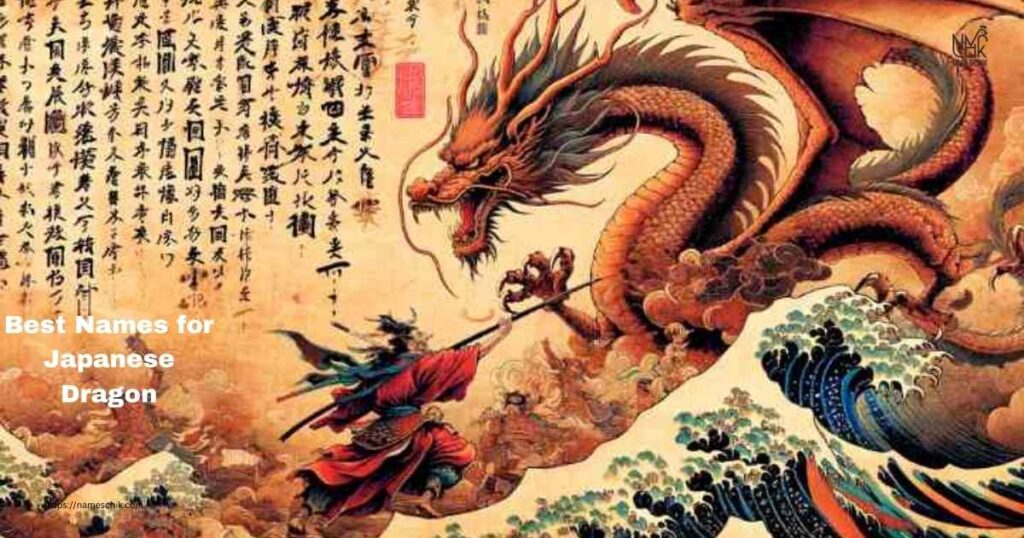
Ryujin: The revered dragon god of the sea represents authority and the protective force of water.
Kurotatsu: The black dragon symbolizes strength and mystery, often associated with hidden treasures and power.
Seiryu: The blue-green dragon represents protection and harmony, guiding those in need towards safety.
Hōō: The phoenix dragon symbolizes rebirth and renewal, often celebrated in festivals and art.
Yamata-no-Orochi: This eight-headed dragon embodies chaos and destruction, often defeated by brave heroes.
Jiraiya: A legendary dragon hero, known for his bravery and adventures, inspiring countless tales.
Ikazuchi: The thunder dragon symbolizes strength and power, often depicted as a fierce warrior.
Fujin: The wind god dragon represents change and freedom, inspiring journeys and new beginnings.
Amaterasu: The sun goddess dragon symbolizes light and hope, guiding followers with warmth and clarity.
Chōkō: The super dragon represents extraordinary strength, often depicted as a protector of realms.
Kōjin: The lightning dragon names symbolizes creativity and passion, inspiring artists in their work and expression.
Hōzuki: The firefly dragon represents beauty and illumination, often celebrated during summer festivals.
Tsukuyomi: The moon god dragon embodies reflection and serenity, guiding souls in their journeys.
Raijin: This thunder dragon represents ferocity and power, often seen as a fierce protector.
Taka: The hawk dragon symbolizes vision and insight, guiding leaders in their decision-making processes.
Jizō: The compassionate dragon represents protection for children and travelers, often depicted in serene settings.
Kame-no-Kami: The turtle dragon symbolizes longevity and wisdom, revered in traditional beliefs.
Shinryū: The divine dragon symbolizes sacred wisdom, guiding followers on their spiritual journeys.
Nūbō: The cloud dragon represents dreams and aspirations, often seen in ancient legends.
Hōma: The flame dragon symbolizes intensity and passion, inspiring creativity and artistic pursuits.
Yumekuri: The dragon names japanese embodies imagination and hope, encouraging individuals to pursue their dreams.
Kōryū: This eternal dragon symbolizes everlasting life and wisdom, guiding souls through different realms.
Fūjin: The wind dragon represents change, reminding us of the constant flow of life.
Kuro: This dark dragon embodies mystery, often depicted as a shadowy figure in folklore.
Chōryū: The super dragon represents unparalleled strength, often celebrated in stories for its heroism.
Tsubasa: The winged dragon symbolizes freedom, inspiring those who seek adventure and exploration.
Akuma: The devil dragon embodies temptation and chaos, often challenging heroes in their quests.
Tsukikage: The moonlit dragon represents romance and mystery, enchanting lovers under starry skies.
Hōkō: The happiness dragon symbolizes joy and positivity, bringing good fortune to all around it.
Kōgai: The radiant dragon represents harmony and balance, reminding us of the importance of unity.
Female Names for Japanese Dragon
- Mizuchi – Water Dragon
- Seiryu – Blue-Green Dragon
- Amaterasu – Sun Goddess Dragon
- Hōō – Phoenix Dragon
- Kawai – Cute Dragon
- Aki – Autumn Dragon
- Hana – Flower Dragon
- Yuki – Snow Dragon
- Kuro – Black Dragon
- Hikari – Light Dragon
- Nami – Wave Dragon
- Hoshiko – Star Child Dragon
- Tsuki – Moon Dragon
- Chibi – Small Dragon
- Ryu – Dragon
- Shizuka – Quiet Dragon
- Megumi – Blessing Dragon
- Kizuna – Bond Dragon
- Kōri – Ice Dragon
- Ritsu – Harmony Dragon
- Hiyoko – Chick Dragon
- Raku – Enjoyment Dragon
- Yuuki – Courage Dragon
- Akira – Bright Dragon
- Tsubasa – Wing Dragon
- Asahi – Morning Sun Dragon
- Aoi – Blue Dragon
- Akane – Deep Red Dragon
- Chō – Super Dragon
- Hōbutsu – Flower Dragon
Read More: Funny Names for Nurse to Add Humor in Healthcare
Male Names for Japanese Dragon
- Tatsu – Dragon
- Ryujin – Dragon God of the Sea
- Takeminakata – God of Agriculture Dragon
- Fūjin – Wind God Dragon
- Raijin – Thunder Dragon
- Yamata-no-Orochi – Eight-Headed Dragon
- Kurotatsu – Black Dragon
- Kōjin – Fire God Dragon
- Jiraiya – Young Thunder Dragon
- Gojira – Godzilla Dragon
- Kōryū – Eternal Dragon
- Susanoo – Storm God Dragon
- Hōō – Phoenix Dragon
- Akiyama – Autumn Mountain Dragon
- Hōma – Flame Dragon
- Ikazuchi – Lightning Dragon
- Hoshiguma – Star Bear Dragon
- Kame-no-Kami – God Turtle Dragon
- Chōkō – Super Dragon
- Hōkō – Happiness Dragon
- Kōgen – Highland Dragon
- Raijin – Thunder God Dragon
- Nūbō – Cloud Dragon
- Kōzō – Great Child Dragon
- Hōzuki – Firefly Dragon
- Amaterasu – Sun God Dragon
- Tsukuyomi – Moon God Dragon
- Fujin – God of Wind Dragon
- Hōkō – Happiness Dragon
- Yamato – Great Harmony Dragon
Historical Names for Japanese Dragon
- Yamata-no-Orochi – Eight-Headed Dragon
- Ryujin – Dragon God of the Sea
- Ikazuchi – Thunder Dragon
- Takeminakata – God of Agriculture Dragon
- Kōjin – Fire God Dragon
- Amaterasu – Sun Goddess Dragon
- Susanoo – Storm God Dragon
- Fūjin – Wind God Dragon
- Hōō – Phoenix Dragon
- Kurotatsu – Black Dragon
- Seiryu – Blue-Green Dragon
- Kame-no-Kami – God Turtle Dragon
- Jiraiya – Young Thunder Dragon
- Gojira – Godzilla Dragon
- Kōryū – Eternal Dragon
- Hōma – Flame Dragon
- Hōzuki – Firefly Dragon
- Ketsumatsu – Blood Dragon
- Hōkō – Happiness Dragon
- Rōyū – Flame Dragon
- Jizō – Guardian Dragon
- Nūbō – Cloud Dragon
- Chōkō – Super Dragon
- Fūgai – Wind God Dragon
- Kamikaze – Divine Wind Dragon
- Kōgen – Highland Dragon
- Raijin – Thunder God Dragon
- Tsukuyomi – Moon God Dragon
- Fujin – God of Wind Dragon
- Hoshiko – Star Child Dragon
FAQs
What are some popular Japanese dragon names?
Popular Japanese dragon names include Ryujin, Yamata-no-Orochi, and Seiryu. These names represent different powers and myths.
What do Japanese dragon names symbolize?
Japanese dragon names often symbolize strength, wisdom, and protection. They reflect the deep cultural beliefs surrounding dragons in Japan.
How are Japanese dragon names used in stories?
Japanese dragon names are commonly found in folklore and legends. They play key roles in adventures and mythical tales.
Can I find Japanese dragon names in modern media?
Yes, many modern media, like anime and movies, feature Japanese dragon names. They are popular for their rich history and captivating stories.
Where can I learn more about Japanese dragon names?
You can learn more about Japanese dragon names in books about Japanese mythology. Online resources and documentaries also provide great information.
Conclusion
Japanese dragon names offer a fascinating glimpse into Japan’s rich mythology. Each of these names, like Ryujin and Yamata-no-Orochi, carries unique meanings and stories. These names reflect the powerful qualities and cultural significance of dragons in Japanese society. By exploring Japanese dragon names, we uncover deeper themes of strength, wisdom, and nature’s connection.
Understanding Japanese dragon names not only enriches our knowledge of folklore but also highlights the dragons’ roles as guardians and symbols of transformation. Whether you’re a fan of mythical creatures or simply curious about Japanese culture, learning about Japanese dragon names is an exciting journey. So, dive into the world of Japanese dragon names and discover the powerful storytelling behind each one. Embrace the magic and mystery that these names bring to life.
